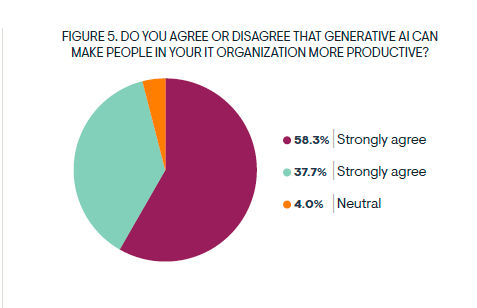In today’s interconnected digital landscape, identity has become the cornerstone of both organizational security and user experience. Whether onboarding a new employee or granting a customer access to services, the journey of identity—commonly referred to as the identity supply chain—encompasses a series of critical stages, from initial verification to continuous authentication and authorization.
Identity Supply Chain – A New Approach to Identity Management and Security
By Ken Buckler on Jan 6, 2025 8:27:01 AM
Cybersecurity in 2025: Trends and Predictions from Industry Experts
By Chris Steffen & Ken Buckler on Dec 20, 2024 12:46:06 PM
The future of cybersecurity is a hot topic, and Episode 91 of the Cybersecurity Awesomeness Podcast dives deep into what 2025 might hold. Hosted by Chris Steffen and Ken Buckler, this episode offers insights into emerging threats, groundbreaking technologies, and the ever-critical human element in security. Here’s what you need to know.
Taking Flight: Aviator Soars One Year in at OpenText World 2024
By Ken Buckler on Dec 6, 2024 9:12:29 AM
OpenText World 2024 highlighted the growing role of AI in enterprise transformation, with Aviator, OpenText’s AI platform, as a focal point. Now one year into its deployment, Aviator has demonstrated significant potential in addressing challenges across industries by integrating AI into business processes. The platform reflects OpenText’s broader strategy of “Elevating Human Potential,” focusing on AI, cloud, and security as key drivers of innovation. Aviator’s emphasis on secure, data-driven AI models has positioned it as a useful tool for tackling the complexity of modern information management.
Bio-whatrics? In the Identity Market, Biometrics Solutions are Gaining Traction, but With Too Narrow a Focus
By Ken Buckler on Sep 17, 2024 9:46:36 AM
I recently had the opportunity to attend Identity Week in Washington, D.C. While this is a smaller conference compared to RSA Conference or Black Hat, some of the conversations were just as powerful and much more focused on the identity market. I was at first encouraged by the large focus of biometrics at the conference, but quickly discouraged upon seeing the limited use cases many of the vendors were promoting.
Avoid These Mistakes When Applying Generative AI to IT Operations
By Shamus McGillicuddy on Sep 12, 2024 3:15:09 PM
Generative AI hype has permeated the world of IT operations. My latest research found that 96% of IT pros who have evaluated or used generative AI for IT management use cases believe it can make people in their organizations more productive.
NaaS Providers Must Offer Observability of Their Networks
By Shamus McGillicuddy on Aug 12, 2024 2:04:07 PM
Network as a service (NaaS) is a class of network infrastructure solutions that are delivered via a cloud-consumption model. Often, these networks are managed offerings, where the provider takes ownership of implementation and day-to-day operations. While a NaaS provider is capable of taking over network management for a customer, many IT organizations prefer to maintain some control and ownership of day-to-day operations for a NaaS-based network.
Review of the 2024 Splunk Conference (or – is Cisco going to mess up Splunk)
By Chris Steffen on Jun 18, 2024 10:56:19 AM
Fresh off a week at the Splunk conference (called .conf24), I want to share a few insights about my time at the show.
Cisco Live: What's the Signal in the AI Noise?
By Shamus McGillicuddy on Jun 4, 2024 3:33:33 PM
Cisco Live is happening in Las Vegas this week. It remains one of the biggest annual gatherings of network infrastructure professionals in the world. It is also a venue for Cisco to showcase its latest products and services, and it is a place where Cisco lays out its overall vision to address customer requirements.
RSA Conference Recap
By Chris Steffen on May 21, 2024 8:56:01 AM
Another RSA conference (not RSA, not #RSA, but “THE RSA Conference” – those that bought the conference do not want it to be associated with RSA the company, which leads me to wonder why they didn’t just rename the thing to something else more securityish) is in the books, and I thought I would share a few thoughts about things I saw and vendors that I met with at the conference.
RSA Conference 2024 Tales from the Show Floor: How Security Needs to Focus on User Experience
By Ken Buckler on May 21, 2024 8:54:09 AM
According to the RSA Conference website, there was a total of 641 vendors exhibiting or sponsoring the conference in the over 738,000 square feet of exhibit space dedicated within the two-million-square-foot Moscone Center. I had meetings scheduled with approximately 20 of these vendors and met with a small handful of additional vendors on the expo floor as time permitted. I didn’t keep track of how far I walked this year, but the entire Moscone Center complex is approximately 87 acres in size. For comparison, the United States Capitol building is only 4 acres. I made several laps around the expo floor each day, as well as walking around the entire complex throughout various parts of the day. Needless to say, my feet are quite tired, but with the conversations I had with vendors, it was worth it.











